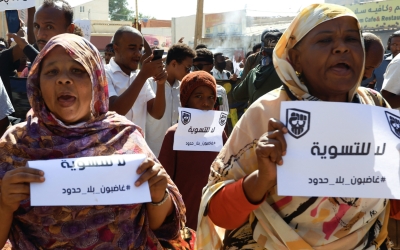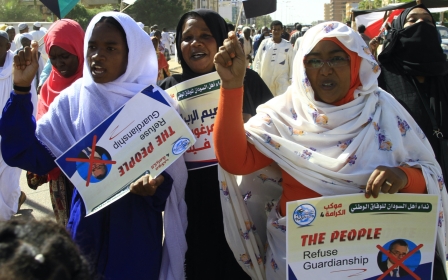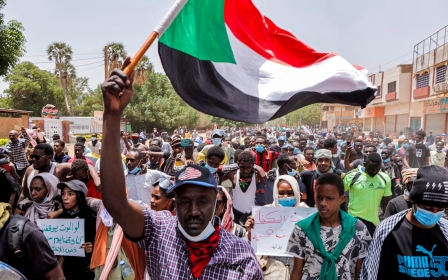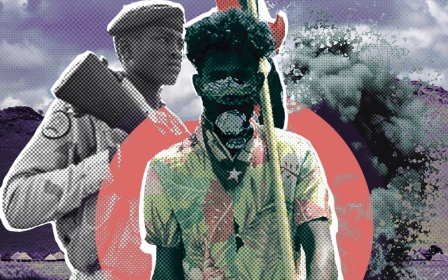US expands visa restriction to Sudanese democracy ‘spoilers’
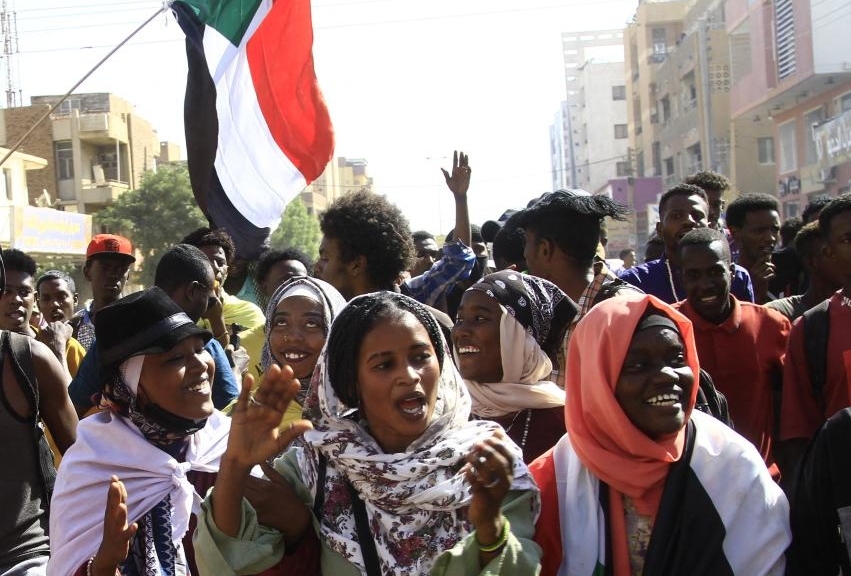
The US on Wednesday announced a new addition to its visa restriction policy targeting individuals “undermining” democracy in Sudan, following an agreement to transition to civilian rule.
The Department of State said in a statement this week that the move comes in “support of the Sudanese people’s demands for freedom, peace, and justice under a democratic government”.
The decision follows a 5 December agreement between military and civilian leaders in Sudan to end military rule that began in the country in late 2021.
The visa restriction expansion covers current and former Sudanese officials or other individuals “believed to be responsible for, or complicit in, undermining the democratic transition in Sudan, including through suppressing human rights and fundamental freedoms, and the immediate family members of such persons,” the statement says.
The DOS said: “...We will not hesitate to use our expanded policy against spoilers in Sudan’s democratic transition process.”
New MEE newsletter: Jerusalem Dispatch
Sign up to get the latest insights and analysis on Israel-Palestine, alongside Turkey Unpacked and other MEE newsletters
At a UN Security Council Briefing on Sudan, political counsellor John Kelley said on behalf of the US mission that the US calls for a “more conducive environment for negotiations” as well as the release of political detainees and an end to violence against protesters.
Since the beginning of the country’s rocky transition to democracy in 2019, civilians in Sudan have taken to the streets in protest of military and government leaders imposing harsh rules and challenging the formation of a new government.
In October 2021, a military coup prompted a call from then-Prime Minister Abdalla Hamdok for popular resistance. Government crackdowns on mass protests and demonstrations had resulted in the deaths of more than 100 civilians and the injuries of thousands more, according to UN experts.
The government continues to come under fire for its treatment of protesters and detention of political prisoners.
In February, lawmakers called on US officials to impose personal sanctions on the military leaders of the coup.
The deal still leaves some issues to be addressed through talks between the two sides in order to finalise the agreement.
These include transitional justice, reforms to the military and security sector, establishing a unified and professional army, an assessment of the Juba Peace agreement with rebels, a structural dismantling of the former regime, and addressing the crisis in Eastern Sudan, including its stability and development.
Middle East Eye delivers independent and unrivalled coverage and analysis of the Middle East, North Africa and beyond. To learn more about republishing this content and the associated fees, please fill out this form. More about MEE can be found here.


